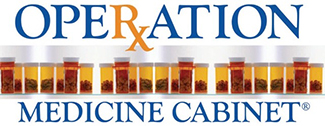Irritable Bowel Syndrome (IBS) is a disorder involving the large intestine. Patients with IBS generally have overactive nerves and muscles in their intestines that over respond to normal stimuli such as eating. It is thought to affect 14 % of the United States population, but only about 3% of those affected seek medical advice and get diagnosed. The average age of diagnosis generally is in patients 25-54 years old, with women being twice as likely as men to suffer from the disorder.
Irritable Bowel Syndrome symptoms can vary from person to person. Diarrhea, constipation, cramps, gas, and mucus in the stool are all common symptoms of IBS. This disorder can be difficult to clearly diagnose because there are no specific tests for it. Generally, a physician will diagnose based on symptoms and also by exclusion of more serious issues. Stool samples, blood work, and a colonoscopy may be performed to rule out other problems. IBS is considered to be a functional gastrointestinal disorder because suffers experience abnormal function in their intestines in the absence of other diseases. IBS suffers may have the condition for a decade before seeking treatment or getting diagnosed.
IBS is sometimes confused with IBD (inflammatory bowel disease). It is not the same thing. IBD is a much more serious disorder that is caused by inflammation in the gastro-intestinal tract (GI tract). Symptoms such as bleeding, weight loss, or fever are not found in patients with IBS, so if these issues are occurring, patients are likely to have a more serious condition like IBD. The good news is that patients with IBS are not more likely to have other more serious GI issues such as colon cancer or other GI diseases.
IBS has four different types of presentations: IBS-C, IBS-D, IBS-M, and IBS-U. IBS-C is IBS with constipation. IBS-D is with diarrhea, IBS-M is mixed IBS, and IBS-U is an un-subtyped type of IBS. These distinctions are made based on the % of time patients have loose stools or very hard stools.
It is very common for IBS sufferers to have issues with GERD (gastro-esophageal reflux disease) or indigestion. They also generally have other issues such as fibromyalgia, chronic fatigue syndrome, temporomandibular joint dysfunction (TMJ), depression, or anxiety. There are several lifestyle changes that can help ease symptoms of IBS. A diet low in fat, high in certain carbohydrates and fiber can be helpful. Certain products such as wheat or rye, milk products, and artificial sweeteners can make IBS worse. Additionally, alcohol and caffeine can worsen symptoms. Avoiding certain vegetables such as cabbage, beans, onions, garlic, asparagus, and mushrooms can lessen the discomfort of gas caused by IBS. It is thought that apples, pears, plums, and mangos are also not good choices for people suffering from IBS because these foods are hard to digest. Because it is thought that overactive nerve endings are part of the cause of IBS, stress or even just eating a normal meal can cause uncomfortable symptoms.
In addition to dietary changes, there are other types of treatment for this disorder. Exercise and stress reduction are definitely shown to help sufferers of IBS. Increasing fiber intake slowly can help patients with diarrhea have more normal stools. Drugs such as loperamide or diphenoxlate/atropine can assist with diarrhea. Antispasmodics like dicyclomine or hyoscamine can help with cramping symptoms and general abdominal discomfort. There are limited medications to treat IBS. Antidepressants can help some people feel better because they decrease the intensity of the pain signal from the gut to the brain. Coated peppermint oil capsules may ease symptoms and probiotics such lactobacillus or bifidobactrium may help normal good bacteria in the gut and normalized stools. There are a few prescription medications that are sometimes used to treat IBS with constipation and IBS with diarrhea. Lotronex is infrequently used for IBS-D. After being off the market for years, it is back but not commonly prescribed and restricted to treating only certain patients. Amitiza and Linzess are both currently on the market to type IBS with constipation.
The good news is that with proper diagnosis and treatment, patient often can find the right combination of treatment approaches that allow them to control their symptom and gain control over their IBS.
Sources
https://medlineplus.gov/irritablebowelsyndrome.html
http://www.medscape.com/viewarticle/506173_4
https://www.niddk.nih.gov/health-information/digestive-diseases/irritable-bowel-syndrome/definition-facts
https://www.niddk.nih.gov/health-information/digestive-diseases/irritable-bowel-syndrome/treatment
http://www.crohnscolitisfoundation.org/resources/ibs-and-ibd-two-very.html
https://www.niddk.nih.gov/health-information/digestive-diseases/irritable-bowel-syndrome/eating-diet-nutrition
http://aboutibs.org/other-disorders/ibs-and-non-gi-functional-disorders.html


